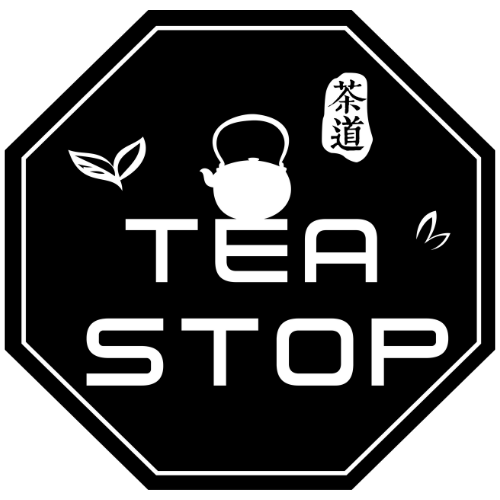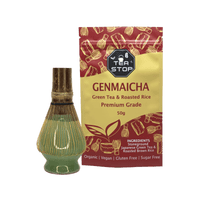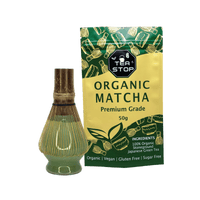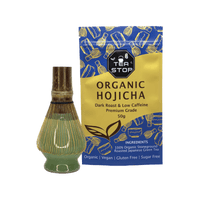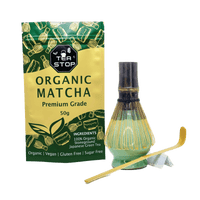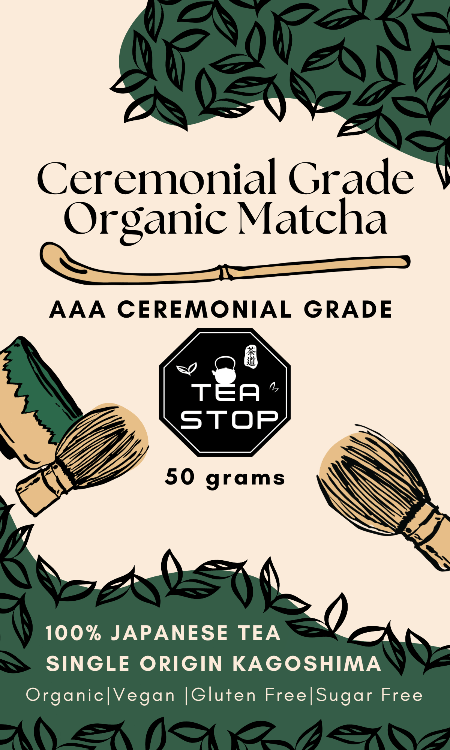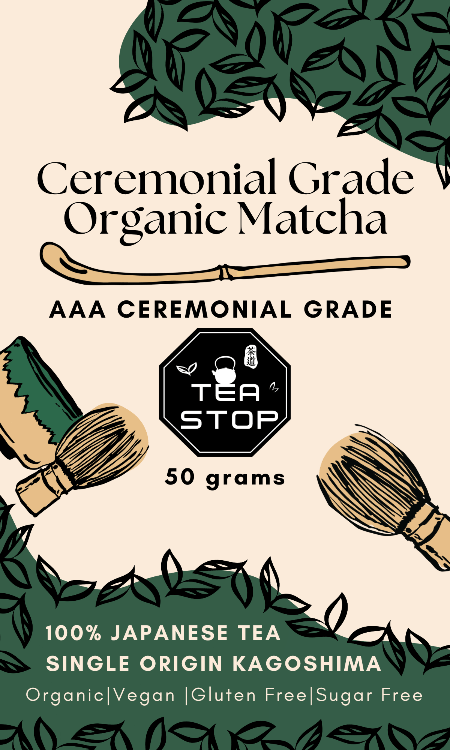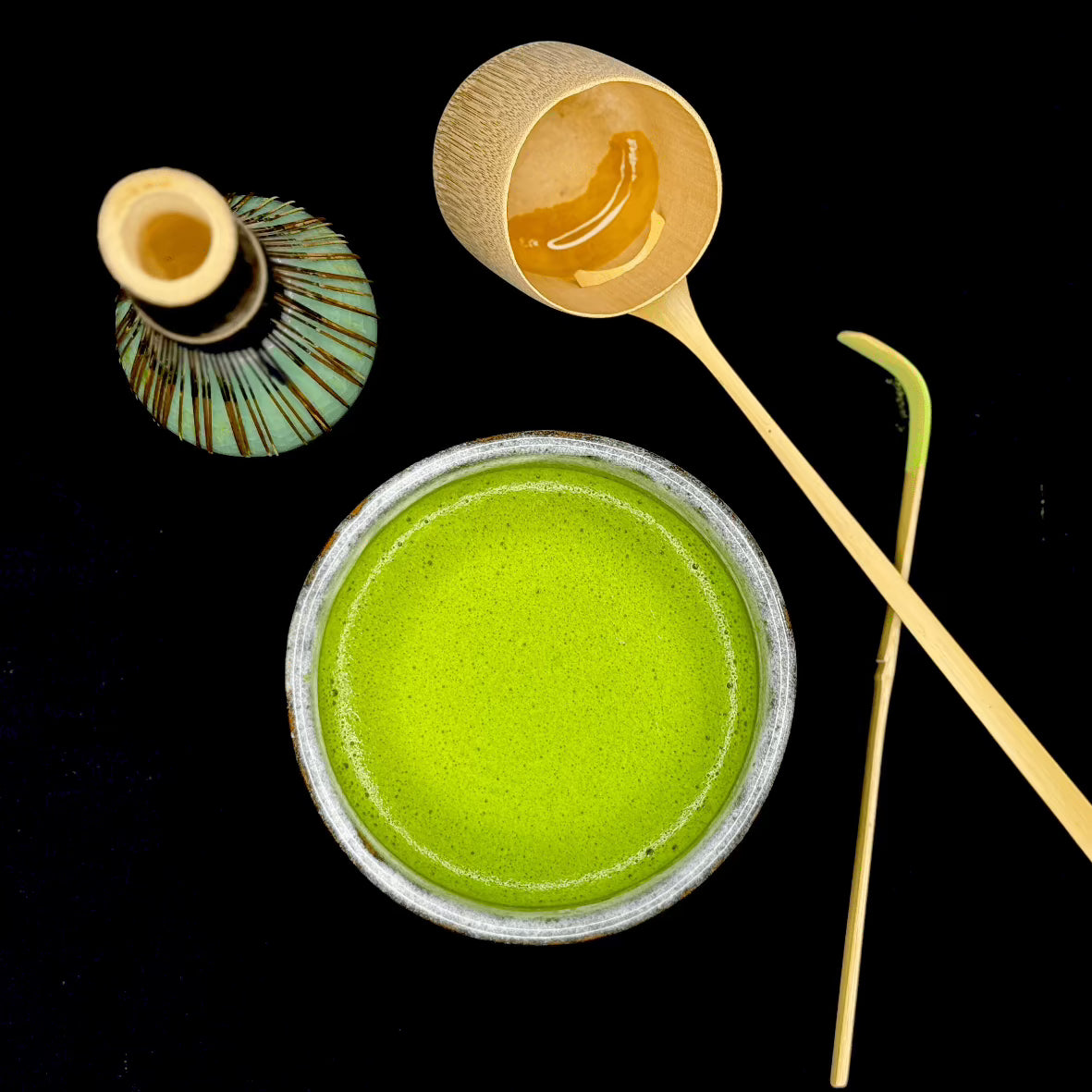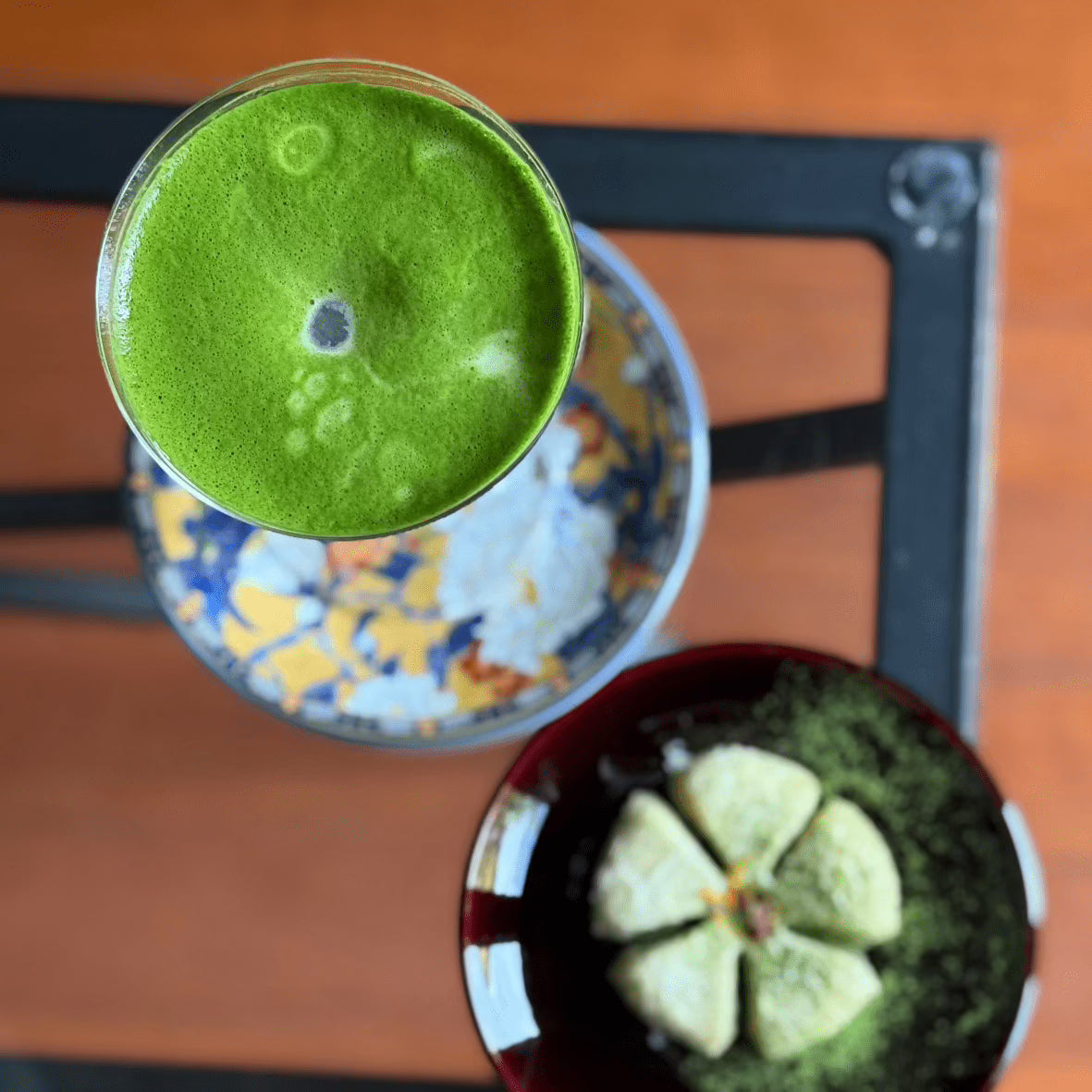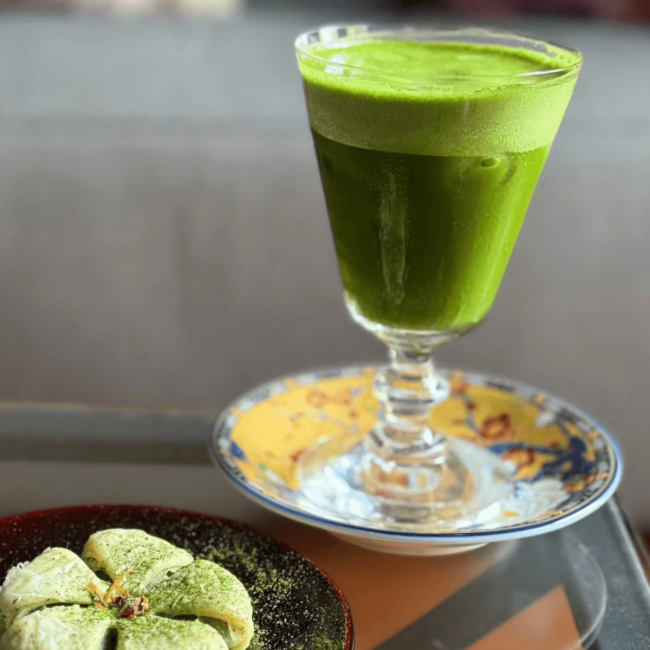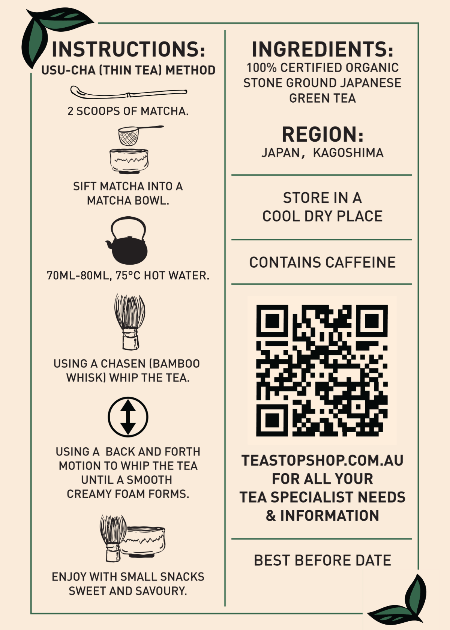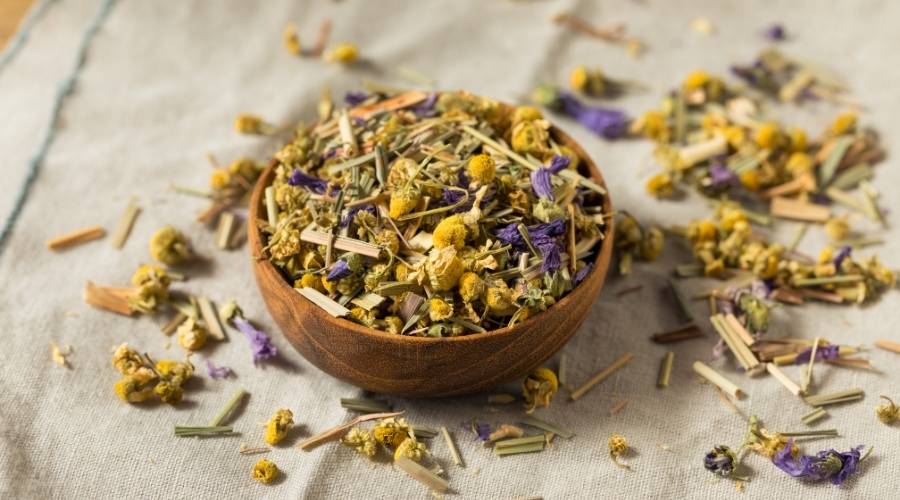
Why Organic Tea Is the Future of Wellness
Share
Organic tea has become a popular wellness drink, gaining popularity as more people worldwide opt for natural and clean-label products. As consumers become increasingly aware of the health benefits of organic tea, including its high antioxidant content and absence of pesticides, demand for this pure and mindful beverage is skyrocketing.
Organic tea is the future of wellness. In this article, we'll explore the reasons why organic tea is becoming an essential part of daily life for those seeking a holistic approach to health and mindfulness. We'll discuss its increasing popularity, significant health benefits, certified quality, unique varieties, and sustainable practices, all of which contribute to enhancing your well-being.

The Growing Popularity of Organic Tea in the Global Wellness Market
The organic tea market growth is an undeniable trend in today's wellness-focused society. As individuals increasingly seek out natural and clean-label products, organic teas are capturing the attention of health-conscious consumers worldwide.
Current Market Trends
- Rising Demand: The demand for organic tea is surging globally. Consumers are prioritizing products free from synthetic chemicals, leading to a significant shift towards choosing organic tea varieties.
- Health Consciousness: There is a noticeable increase in consumer health consciousness. This preference for pesticide-free tea reflects a broader desire to avoid harmful substances and support overall well-being.
Expansion of Accessibility
- Retail Infrastructure: With the expansion of retail infrastructure, organic teas are becoming more accessible. Specialty stores and supermarkets are dedicating shelf space to these premium products.
- Online Channels: E-commerce platforms are playing a crucial role in this growth. Online channels offer convenient access to diverse organic tea options, allowing consumers to explore and purchase with ease.
The growing popularity of organic tea is driven by these factors, positioning it as a staple in the global wellness market.
Health Benefits of Drinking Organic Tea Daily
Sipping organic tea is much more than a mindful ritual; it’s an act of nourishment for both body and mind. The higher levels of beneficial plant compounds found in certified organic teas, such as catechins, polyphenols, and amino acids, set them apart from conventional options. These natural antioxidants in tea help protect cells from oxidative stress, which is linked to healthier aging and reduced risk of chronic illness.
1. Antioxidant Power
Organic green teas and Japanese ceremonial-grade matcha are especially rich in catechins, which support immune resilience and cardiovascular health.
2. Gut Health Benefits
Polyphenols in loose-leaf organic tea feed beneficial gut bacteria, contributing to balanced digestion and gentle detoxification.
3. Anxiety Reduction & Improved Focus
L-theanine, an amino acid found abundantly in shade-grown matcha and premium green teas, works synergistically with naturally occurring caffeine. This unique combination offers calm alertness, easing feelings of anxiety while enhancing mental clarity.
4. Daily Wellness Ritual
Choosing organic tea means enjoying your cup free from synthetic pesticides or chemical residues. Each sip becomes a moment to reconnect with yourself through intention and presence.
“A daily pause with organic tea supports a holistic sense of wellness: clarity for the mind, vitality for the body, peace for the spirit.”
This mindful approach to daily tea drinking gently prepares you to discover why certified organic standards matter so deeply for both quality and wellbeing.
Why Certified Organic Teas Are the Superior Choice
Certified Organic Teas follow strict guidelines that guarantee no artificial chemicals or pesticides are used. These certifications ensure that the tea is cultivated in harmony with nature, without any harmful substances that could impact health or the environment.
Ethical sourcing from trusted organic farms is crucial for preserving the purity and taste of the tea leaves. When you choose certified organic teas, you support farms committed to sustainable practices and fair working conditions. This dedication not only maintains the natural qualities of the tea but also respects the traditions and skills of those who grow it.
The significance of choosing certified organic teas lies in their genuine nature and superior quality. Drinking tea sourced ethically promotes a mindful tea experience, bringing clarity and tranquility with every sip.
Specialty Organic Teas and Their Unique Wellness Contributions
Japanese Ceremonial-Grade Matcha
Japanese ceremonial-grade matcha stands out for its unique antioxidant-rich profile. This finely ground green tea powder is celebrated not only for its vibrant color but also for its wellness rituals. Matcha benefits include:
- High levels of catechins, particularly EGCG (epigallocatechin gallate), are known to support heart health and metabolism.
- Natural L-theanine content, which promotes calmness and mental clarity.
- Contribution to mindfulness practices through traditional preparation methods involving a whisk and bowl.
Premium Organic Rooibos
Premium organic rooibos offers remarkable nutritional benefits. Known for its rich, earthy flavor, rooibos is naturally caffeine-free and boasts potent antioxidant properties. Key aspects:
- Contains aspalathin and quercetin, antioxidants that may help protect cells from damage.
- Potential anti-inflammatory effects are beneficial for overall wellness.
- Supports healthy digestion and can be enjoyed as a soothing beverage any time of the day.
Organic Oolong Tea
Organic oolong tea is prized for its distinctive qualities that can boost metabolism and vitality. This partially oxidized tea bridges the gap between green and black teas, offering:
- A unique blend of polyphenols contributes to weight management by enhancing fat metabolism.
- Rich in theaflavins, supporting cardiovascular health.
- Ability to improve mental alertness while providing a balanced energy boost.
Exploring these specialty teas can introduce diverse flavors and wellness benefits into your daily ritual, each contributing uniquely to your overall health journey.

Quality Brewing Practices to Maximize Benefits from Organic Tea
Brewing tea is a mindful ritual—one that honors both the leaf and your wellbeing. Each organic tea reveals its fullest potential when prepared with care for temperature and time.
Recommended Brewing Temperatures for Tea:
-
Green & White Teas: 70–80°C
This gentle range preserves delicate catechins and avoids scalding, resulting in a smooth, vibrant cup. -
Black & Herbal Teas: 90–100°C
The higher heat draws out robust flavors and deeper notes unique to these leaves.
Ideal Steeping Times for Loose Leaf Tea:
-
Green Tea: 2–3 minutes
Unlocks antioxidants while keeping bitterness at bay. -
Black Tea: 3–5 minutes
Allows for full-bodied richness without overpowering tannins. -
Herbal Infusions: 5–7 minutes
Longer steeping coaxes out soothing botanicals and gentle sweetness.
A simple pause—waiting just long enough—lets your cup bloom with nutrients, aroma, and intention.
Adjusting brewing temperatures for tea and steeping times for loose leaf tea invites you into the heart of the tea ritual. Each infusion becomes an opportunity to nourish body and mind with every sip.
Sustainability and Ethical Considerations in Choosing Organic Tea
Organic tea represents a blend of environmental awareness and cultural appreciation. The sustainable farming methods used in organic tea cultivation steer clear of artificial pesticides and fertilizers, promoting healthier soil, safeguarding water bodies, and encouraging a diverse range of plant and animal life. This results in a smaller ecological impact over time compared to traditional farming practices.
Environmental Benefits of Organic Tea
- No chemical runoff or residue
- Encourages natural pest management
- Supports regenerative agriculture
Cultural Significance of Organic Tea
- Sustains artisanal techniques
- Helps rural communities thrive
- Honors rituals that connect people to place
In the tea industry, ethical sourcing means more than just ensuring purity. When you opt for organic tea from reputable gardens, you are directly supporting small-scale farmers who practice age-old methods. This is particularly true in places like Japan, where skilled artisans meticulously care for matcha fields. By forming ethical partnerships with these growers, we can protect both the land and the traditional skills passed down through generations.
When you choose organic tea, your decision has a ripple effect that goes beyond your beverage, benefiting both the planet and the laborers who contribute to each harvest.
The Future Outlook for Organic Tea as a Wellness Staple
Rising interest in mindful living and holistic health continues to shape future wellness trends, placing organic tea at the heart of daily rituals for many Australians. As more individuals seek clean-label products that nurture both body and mind, premium organic loose leaf teas in Australia are emerging as everyday essentials. This shift is fostered by several key forces:
1. Growing Disposable Income
With greater capacity for thoughtful spending, Australians are investing in higher-quality, ethically sourced teas that align with personal values and wellness goals.
2. Innovations in Digital Retail & Eco-Friendly Packaging
The convenience of discovering and ordering organic tea online has opened new pathways to access specialty blends, ceremonial matcha, and handcrafted chai. Compostable packaging innovations are gaining traction, reflecting a shared commitment to sustainability while enhancing the unboxing experience for tea lovers.
3. Continued Focus on Authenticity and Transparency
Tea drinkers increasingly value traceability—from garden to cup. Certified organic teas offer peace of mind by ensuring no synthetic pesticides or chemicals touch the leaves, while also honoring the artisanal traditions behind every harvest.
4. Integration into Modern Wellness Practices
Organic tea’s role in supporting meditation, mindfulness breaks, and daily rituals is becoming deeply woven into contemporary self-care routines. This integration signals a lasting place for organic tea within the broader landscape of health and well-being.
“Each cup of organic tea offers a sacred pause—a moment to ground, reconnect, and nourish.”
